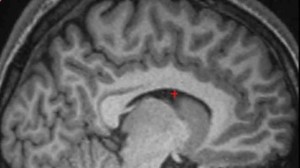Published: October 18, 2011

Image: istockphoto
t’s time for forgetting to get some respect, says Ben Storm, author of a new article on memory in
Current Directions in Psychological Science, a journal of the
Association for Psychological Science. “We need to rethink how we’re talking about forgetting and realize that under some conditions it actually does play an important role in the function of memory,” says Storm, who is a professor at the
University of Illinois at Chicago.
“Memory is difficult. Thinking is difficult,” Storm says. Memories and associations accumulate rapidly. “These things could completely overrun our life and make it impossible to learn and retrieve new things if they were left alone, and could just overpower the rest of memory,” he says.
But, fortunately, that isn’t what happens. “We’re able to get around these strong competing inappropriate memories to remember the ones we want to recall.” Storm and other psychological scientists are trying to understand how our minds select the right things to recall—if someone’s talking about beaches near Omaha, Nebraska, for example, you will naturally suppress any knowledge you’ve collected about Omaha Beach in Normandy. [continue reading…]
Published: October 9, 2011
A new study of the brain explains why some of us are better than others at remembering what really happened.
 A structural variation in a part of the brain may explain why some people are better than others at distinguishing real events from those they might have imagined or been told about, researchers have found.
A structural variation in a part of the brain may explain why some people are better than others at distinguishing real events from those they might have imagined or been told about, researchers have found.
The University of Cambridge scientists found that normal variation in a fold at the front of the brain called the paracingulate sulcus (or PCS) might explain why some people are better than others at accurately remembering details of previous events -such as whether they or another person said something, or whether the event was imagined or actually occurred. The research was published today, 05 October, in the Journal of Neuroscience.
This brain variation, which is present in roughly half of the normal population, is one of the last structural folds to develop before birth and for this reason varies greatly in size between individuals in the healthy population. The researchers discovered that adults whose MRI scans indicated an absence of the PCS were significantly less accurate on memory tasks than people with a prominent PCS on at least one side of the brain. Interestingly, all participants believed that they had a good memory despite one group’s memories being clearly less reliable. [continue reading…]
Published: September 26, 2011

Vitamin B12 is found in meat, fish and dairy,
lder people with low blood levels of vitamin B12 markers may be more likely to have lower brain volumes and have problems with their thinking skills, according to researchers at
Rush University Medical Center.
The results of the study are published in the Sept. 27 issue of Neurology, the medical journal of the American Academy of Neurology.
Foods that come from animals, including fish, meat, especially liver, milk, eggs and poultry are usual sources of vitamin B12.
The study involved 121 older residents of the South side of Chicago who are a part of the Chicago Health and Aging Project (CHAP), which is a large, ongoing prospective Rush a biracial cohort of 10,000 subjects over the age of 65.
The 121 participants had blood drawn to measure levels of vitamin B12 and B12-related markers that can indicate a B12 deficiency. The same subjects took tests measuring their memory and other cognitive skills.
An average of four-and-a-half years later, MRI scans of the participants’ brains were taken to measure total brain volume and look for other signs of brain damage.
Having high levels of four of five markers for vitamin B12 deficiency was associated with having lower scores on the cognitive tests and smaller total brain volume. [continue reading…]
Published: August 4, 2011
A new study published online (Aug. 3) in the journal PLoS ONE reveals that almost two-thirds of Americans believe that memory works like a video camera, accurately recording events for later review.
Stephanie Pappas writes more on the study at MSN check our the article here
What do you believe about memory? Test yourself here
Follow the link to test yourself with the online survey. The survey is for educational purposes only, but University of Illinois at Urbana-Champaign psychologist Daniel Simons and Union college psychologist Christopher Chabris worked with a polling company to ask the same questions to Americans over the telephone.
The book


Source: MSNBC , The Invisible Gorilla




